World Radio Day: Celebrating the Power of Radio
Introduction
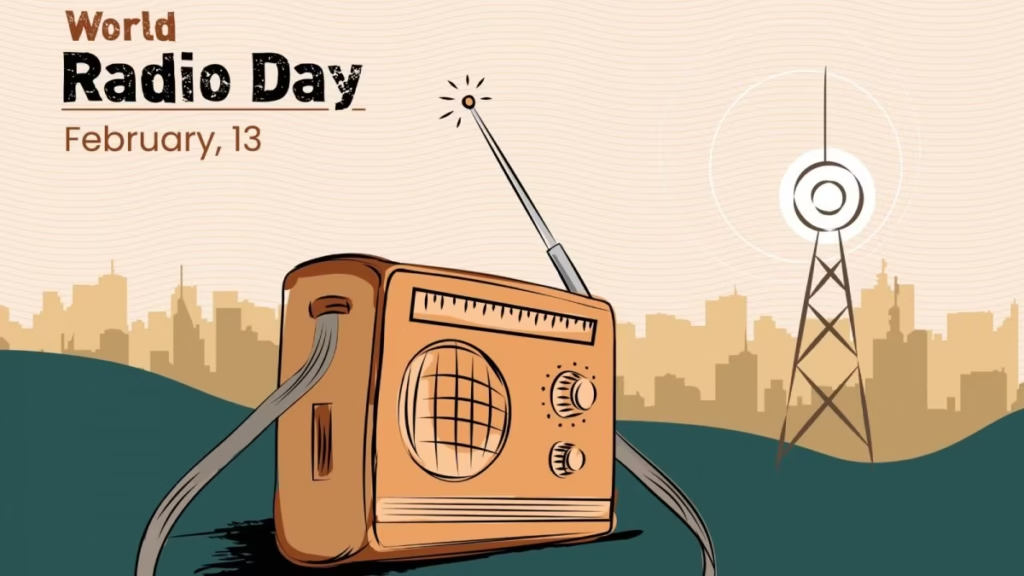
World Radio Day is an annual celebration observed on February 13th to recognize the immense impact of radio as a medium of communication, information, and entertainment. Established by the United Nations Educational, Scientific and Cultural Organization (UNESCO) in 2011, this day honors the role of radio in shaping societies, promoting dialogue, and providing access to information, especially in remote and underprivileged regions.
Radio remains one of the most powerful, accessible, and cost-effective means of communication, reaching billions of people across the globe. Whether it’s news broadcasting, emergency alerts, cultural programming, or community discussions, radio continues to serve as a bridge connecting different cultures, languages, and perspectives. Unlike television and the internet, which require more expensive infrastructure and devices, radio is a resilient medium that works even in the most challenging conditions, making it indispensable for crisis situations, rural communities, and marginalized populations.
From revolutionizing mass communication in the early 20th century to its continued relevance in the digital age, radio has played a pivotal role in disseminating knowledge, amplifying voices, and fostering social change. Even today, in an era dominated by smartphones and streaming platforms, radio remains a steadfast companion for millions, proving that the power of audio storytelling and direct engagement with listeners is timeless. World Radio Day serves as an opportunity to acknowledge the significance of this medium, celebrate its past achievements, and explore its evolving future in the global media landscape.
History and Significance of World Radio Day
World Radio Day is a global celebration that honors the power and impact of radio as a vital medium of communication. The idea for this observance was first proposed by Spain in 2010, recognizing the role of radio in informing, educating, and entertaining people worldwide. The proposal was well received, and in 2011, UNESCO officially declared February 13th as World Radio Day.
The chosen date holds historical significance as it marks the establishment of United Nations Radio on February 13, 1946. This initiative emphasized the importance of radio in global communication, peacekeeping, and humanitarian efforts, especially in post-war reconstruction. The UN saw radio as a means to bridge cultural gaps, disseminate important information, and promote international dialogue, making it an essential tool for fostering understanding among nations..
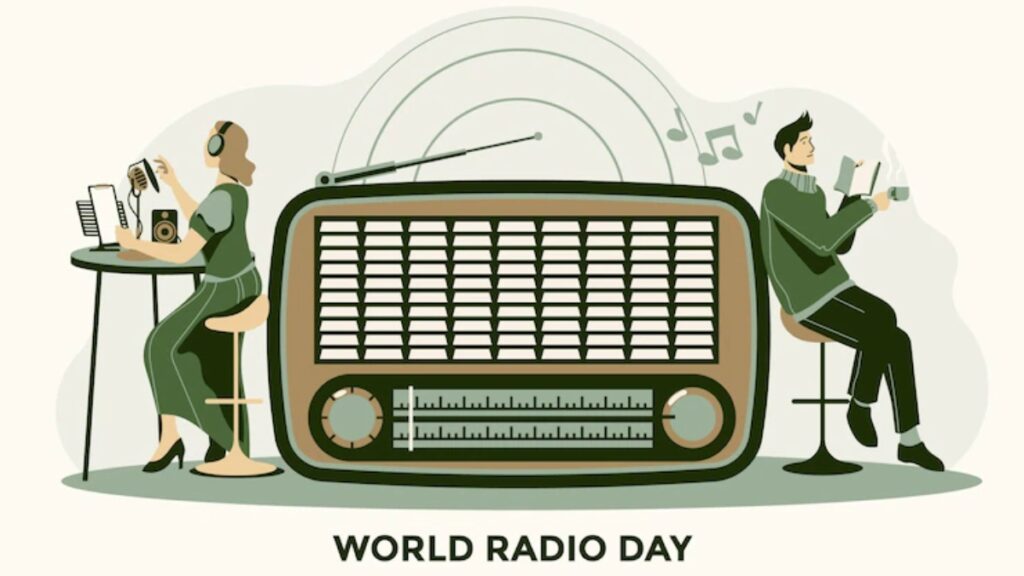
The Historical Role of Radio
Since its invention, radio has played a pivotal role in shaping history and society. Throughout the 20th and 21st centuries, it has been instrumental in disseminating information, raising awareness, and bringing communities together. Some key moments that highlight its significance include:
- Wartime Broadcasting: During World War II, radio became the primary medium for news updates, military communication, and morale-boosting speeches. Leaders like Winston Churchill and Franklin D. Roosevelt used radio to rally their nations, while resistance movements relied on clandestine radio stations to spread messages against oppression.
- Disaster Response and Emergency Communication: Radio has been a lifeline in times of natural disasters and humanitarian crises. Unlike other forms of communication, radio signals can reach remote areas where electricity and internet access are unavailable. Stations provide real-time updates on rescue operations, weather warnings, and emergency relief efforts.
- Social and Political Movements: Radio has historically been a tool for social change and activism. From the Civil Rights Movement in the United States to anti-colonial struggles in Africa and Asia, radio broadcasts have spread revolutionary ideas and mobilized communities for justice.
The Relevance of Radio in the Digital Age
Despite the dominance of television, the internet, and social media, radio continues to thrive as a trusted and accessible medium worldwide. It remains especially relevant in:
- Rural and Remote Areas: In regions with limited internet connectivity and electricity, radio is often the only source of news, education, and entertainment.
- Disaster-Prone Zones: During hurricanes, earthquakes, and other emergencies, radio remains operational when other communication networks fail.
- Crisis Reporting and Journalism: Many journalists and independent media organizations rely on radio to report from conflict zones, give a voice to marginalized communities, and expose corruption.
- Community Engagement and Cultural Preservation: Local and community radio stations help preserve indigenous languages, folk traditions, and local music, strengthening cultural identity.
Themes of World Radio Day
Each year, UNESCO selects a specific theme to focus on the evolving role of radio. Some past themes include:
- 2021: New World, New Radio – The resilience and adaptability of radio.
- 2022: Radio and Trust – Exploring radio as a reliable source of information.
- 2023: Radio and Peace – Highlighting radio’s role in conflict resolution.
- 2024: A yet-to-be-announced theme, expected to emphasize modern challenges and innovations in radio broadcasting.
Impact of Radio in Modern Society
Radio continues to be a powerful medium of communication that influences various aspects of modern society. Despite advancements in digital technology, radio remains relevant due to its accessibility, affordability, and ability to reach a vast audience. Its impact can be seen in multiple domains, ranging from information dissemination to cultural exchange and emergency communication.
Dissemination of Information
Radio provides timely and accurate information to communities, keeping people informed about local, national, and international events. Unlike digital platforms that require internet connectivity, radio ensures that even people in remote areas have access to news and updates. It plays a crucial role in bridging the information gap and fostering an informed society.
Emergency Communication
During natural disasters, crises, or emergencies, radio often serves as the most reliable and immediate source of information. It provides real-time updates on weather conditions, evacuation measures, and government responses, helping to save lives. In many disaster-prone regions, battery-powered or hand-cranked radios are essential tools for survival, ensuring that communities receive guidance when other communication networks fail.
Education and Awareness
Radio serves as an important medium for education and awareness, especially in regions with limited access to formal schooling. Many educational programs, health awareness campaigns, and literacy drives rely on radio to reach people in rural and remote areas. Governments and NGOs use radio broadcasts to educate people on topics such as hygiene, nutrition, environmental conservation, and social issues, thereby contributing to overall community development.
Cultural Exchange and Entertainment
Radio fosters cultural exchange by broadcasting diverse music, storytelling, talk shows, and discussions that promote cultural diversity and unity. It serves as a platform for local artists, musicians, and writers to showcase their talent and preserve traditional folklore. Additionally, radio provides entertainment to millions through live sports coverage, radio dramas, and interactive talk shows, making it an integral part of daily life.
Political Engagement and Freedom of Speech
Radio plays a significant role in fostering political engagement and upholding freedom of speech. It serves as a platform for debates, discussions, and voicing opinions, making it an essential tool for democratic societies. Talk shows and political programs allow citizens to engage with policymakers, express their views, and stay informed about government policies and elections. In many countries, independent radio stations contribute to transparency, holding authorities accountable and empowering citizens with knowledge.
Economic Development and Advertising
Radio is also a driving force behind economic development, providing a cost-effective medium for businesses to advertise their products and services. Small businesses, especially in rural areas, benefit from radio advertising to reach potential customers. Community radio stations support local enterprises, farmers, and artisans by promoting their work, thereby boosting regional economies.
Social Connection and Inclusion
Radio helps bridge social divides by connecting people across different backgrounds and demographics. It provides a sense of community and companionship, particularly for the elderly and those who may be socially isolated. Interactive programs, call-in shows, and community radio initiatives allow individuals to share their experiences, seek advice, and participate in discussions, fostering a sense of belonging.
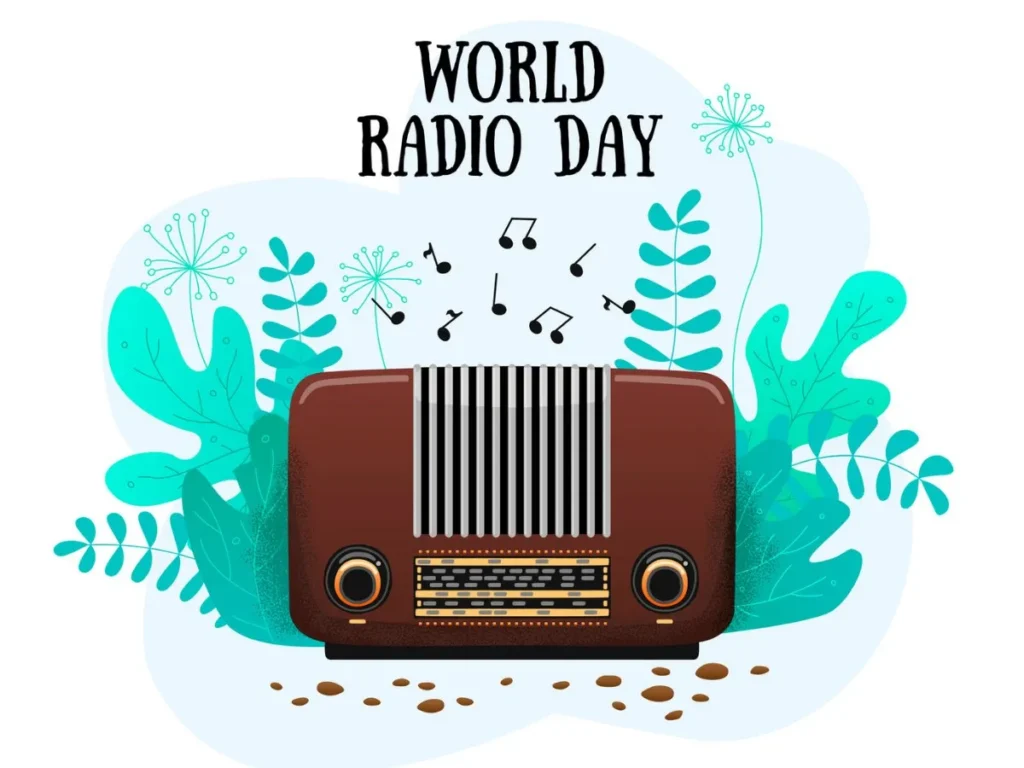
Challenges Facing Radio Today
Despite its historical significance and continued relevance, radio faces several challenges in the modern world. As technology and media consumption habits evolve, traditional radio must adapt and innovate to maintain its influence and reach. Here are some of the key challenges radio is currently facing:
1. The Rise of Digital Media
One of the biggest challenges for traditional radio is the explosive growth of digital media. The emergence of streaming services, podcasts, and on-demand audio platforms has transformed the way people consume audio content.
- Competition with Streaming Services: Platforms like Spotify, Apple Music, and YouTube Music allow users to create personalized playlists and access a vast library of content without commercial interruptions. This has reduced the audience for traditional FM/AM radio, especially among younger generations.
- The Podcast Boom: Podcasts have surged in popularity, offering specialized and niche content tailored to individual preferences. Unlike radio, podcasts provide on-demand listening, allowing people to tune in whenever and wherever they choose.
- Smart Devices and AI Assistants: With the increasing use of smart speakers, AI assistants (like Alexa and Google Assistant), and mobile apps, audiences can access a variety of content at their convenience, making traditional radio seem less attractive.
To counter these shifts, many radio stations have expanded their presence online, offering live streaming, digital broadcasts, and podcast versions of their shows to engage digital audiences. However, the transition is not always smooth and requires significant investment in technology and infrastructure.
2. Funding and Revenue Issues
Financial sustainability is a growing concern for many radio stations, especially independent and community-based broadcasters.
- Declining Advertising Revenue: Traditionally, radio has relied heavily on advertisements for funding. However, with businesses shifting their marketing budgets to social media, digital ads, and influencer promotions, radio stations have experienced a decline in ad revenue.
- Subscription-Based Models vs. Free Radio: While streaming services like Spotify and Apple Music generate revenue through subscriptions and premium memberships, most radio stations continue to provide free content. Finding a sustainable revenue model without losing their listener base remains a major challenge.
- Government and Public Funding Challenges: Many public and community radio stations rely on government grants or listener donations. However, funding cuts and financial instability often threaten their operations, making it difficult to maintain quality programming.
To overcome these financial hurdles, some radio stations have explored sponsorships, branded content, crowdfunding, and membership models, but monetization remains a complex issue.
3. Censorship and Press Freedom
Radio has long been a powerful tool for free speech and public discourse, but in many countries, it faces government censorship and regulatory restrictions.
- Government Control & Censorship: In authoritarian regimes, radio stations are often state-controlled or heavily regulated, limiting their ability to broadcast unbiased news, political debates, or investigative journalism. Independent radio stations may face threats, shutdowns, or legal action for airing dissenting views.
- Access to Unbiased Information: In regions with press restrictions, radio audiences may struggle to access fact-based, independent journalism, as governments impose content limitations to control the narrative.
- Journalist Safety: Radio journalists working in conflict zones or politically unstable regions face threats, harassment, and even violence for reporting sensitive issues.
Despite these challenges, radio remains one of the few media formats that can reach remote areas where other news sources are unavailable. International organizations like UNESCO and Reporters Without Borders continue to advocate for press freedom and the protection of radio broadcasters.
4. Technological Advancements and the Shift to Digital Broadcasting
While technological advancements have introduced new opportunities, they also pose significant challenges for traditional radio.
- The Transition from Analog to Digital Broadcasting: Many countries are shifting from analog AM/FM radio to digital radio (such as DAB – Digital Audio Broadcasting). While digital radio offers better sound quality and more channels, the transition requires costly infrastructure upgrades that many stations struggle to afford.
- Audience Fragmentation: With the rise of digital platforms, audiences have become more fragmented, tuning into niche podcasts, streaming services, and satellite radio rather than mainstream FM/AM broadcasts. This makes it difficult for traditional radio stations to retain a large, consistent listener base.
- Keeping Up with Emerging Technologies: Technologies like AI-driven content curation, interactive audio experiences, and smart speaker integration are shaping the future of audio consumption. Radio stations must adapt quickly to remain relevant, but smaller broadcasters may lack the resources to do so.
To address these challenges, many radio networks are embracing hybrid models, combining traditional broadcasting with online streaming, mobile apps, and interactive features to appeal to modern audiences.
The Future of Radio
Despite the challenges, radio continues to innovate and adapt to changing times. Digital radio, online streaming, and podcasts have expanded the reach of traditional radio stations. The integration of artificial intelligence and interactive broadcasting is reshaping how listeners engage with radio content.
World Radio Day serves as a reminder of radio’s enduring influence and encourages further investment in its growth and accessibility. As technology advances, radio will continue to evolve while maintaining its core purpose—connecting, informing, and empowering communities worldwide.
World Radio Day Wishes in English
- You want music or you want news, whether you want information or you want knowledge. Although Everything is available on the radio.
- This is the media that connects different cultures and also diversities to weave us all together in one thread.- Happy World Radio Day
- Today is the day to honor the most amazing invention in the world which has touched many lives. Warm wishes on World Radio Day to all.- Happy World Radio Day
- Radio is something that has been connecting us with the happening around the globe forever. – Happy World Radio Day
- Just tune in to the radio and you will never be alone for it has the power to fill the voids.- Happy World Radio Day
- No matter what your age is, also no matter where you live, you can always connect with the outside world with the radio.- Happy World Radio Day
- Radios are extremely powerful although they can reach millions of ears and minds at the same time. Wishing you a warm and Happy World Radio Day
- FM radio can only run out of one thing and that is time but it can never run out of music. Let us celebrate this beautiful invention on World Radio Day.
- On the occasion of World Radio Day, let us celebrate the contribution that radio has made to society. Wishing you a very Happy World Radio Day
- Every day, every hour, and also every minute, there are millions of people listening to the radio because it is a part of their lifestyle. – Happy World Radio Day
Hindi World Radio Day Wishes
- रेडियो बेहद शक्तिशाली होते हैं क्योंकि वे एक ही समय में लाखों कानों और दिमागों तक पहुंच सकते हैं। ”
- “आज का दिन दुनिया में सबसे आश्चर्यजनक आविष्कार का सम्मान करने का दिन है जिसने कई लोगों के जीवन को छुआ है।”
- “रेडिओ बजाते रहो, गुनगुनाते रहो. हैप्पी रेडिओ डे “
- “मेरा वह रेडिओं ही था, जो कानो से भी देखना सिखाया”
- “जीवन कोई पेनड्राईव नहीं, की मनपसंद गाने बजा सके, जीवन तो रेडिओं हैं, अक कौन सा गाना बज जाए पता ही नहीं होता.”
- “कोई फर्क नहीं पड़ता कि आपकी उम्र क्या है, कोई फर्क नहीं पड़ता कि आप कहां रहते हैं, आप हमेशा बाहरी दुनिया के साथ रेडियो से जुड़ सकते हैं।”
- “हर दिन, हर घंटे, हर मिनट, लाखों लोग रेडियो सुनते हैं क्योंकि यह उनकी जीवन शैली का एक हिस्सा है। ”
- “आप संगीत चाहते हैं या आप समाचार चाहते हैं, आप जानकारी चाहते हैं या आप ज्ञान चाहते हैं। सब कुछ रेडियो पर उपलब्ध है।”
- संचार के सुंदर साधनों का सम्मान करें जिन्होंने उस समय तक कई जीवन को छुआ है। आपको विश्व रेडियो दिवस की बहुत-बहुत शुभकामनाएं।”
- “अपने कैलेंडर को चिह्नित करें और इस दिन संचार की दुनिया में रेडियो की भूमिका का सम्मान करने के लिए अपना समय समर्पित करें। “
- “विश्व रेडियो दिवस के इस अवसर पर एक साथ आते हैं और उन लोगों के साथ रेडियो मनाते हैं जो उनके पीछे खड़े होते हैं और उन्हें असाधारण बनाते हैं।”
- “आज के इस दिन दुनिया को करीब लाने वाले रेडियो के माध्यम से अपने विचार साझा करने की आज़ादी देने वाले इस विश्व रेडियो दिवस पर आपको हार्दिक शुभकामनाएँ।”
- “इस दिन एक रेडियो कार्यक्रम की योजना बनाएं और लोगों में अभिव्यक्ति की स्वतंत्रता, अंतर्राष्ट्रीय प्रसारण और मानव अधिकारों के बारे में जागरूकता फैलाएं।”
Conclusion-
World Radio Day is not just about celebrating a communication medium; it is about recognizing radio’s profound role in shaping society, preserving cultures, and giving a voice to the voiceless. From its early beginnings as a revolutionary form of mass communication to its modern-day adaptation in the digital era, radio has remained a trusted companion in people’s daily lives. It has informed, educated, entertained, and connected communities, bridging gaps between languages, cultures, and geographical boundaries.
As we commemorate this day, we must acknowledge the resilience of radio in the face of modern technological transformations. Despite the rise of digital media, social networks, and on-demand streaming services, radio continues to hold a unique position as an accessible, immediate, and inclusive platform for millions across the globe. It is a lifeline during crises, a source of joy and companionship in isolation, and a catalyst for social change and awareness.
Moving forward, it is crucial to support the ongoing evolution of radio. Governments, media organizations, and individuals must invest in technological advancements, ensure press freedom, and uphold the integrity of radio broadcasting. Expanding its reach to underserved communities, embracing digital innovations, and fostering independent journalism will help radio remain relevant and impactful in the years to come.
Whether through traditional AM/FM stations, digital streaming, or podcasting, radio remains a unifying force that transcends borders and brings people together. It continues to amplify diverse voices, promote dialogue, and foster a shared sense of humanity.
Let us continue to celebrate and appreciate the magic of radio, ensuring that it remains a vital tool for education, entertainment, and empowerment for generations to come. By embracing both its legacy and its future potential, we reaffirm radio’s role as an indispensable medium that continues to inspire, inform, and connect the world.
For More Info You Can Visit Here .
Want to read more articles like this? Explore now!

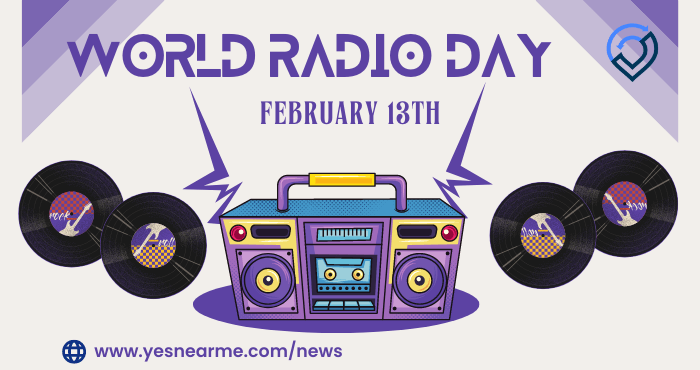


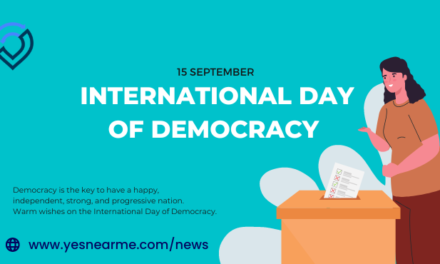


Recent Comments